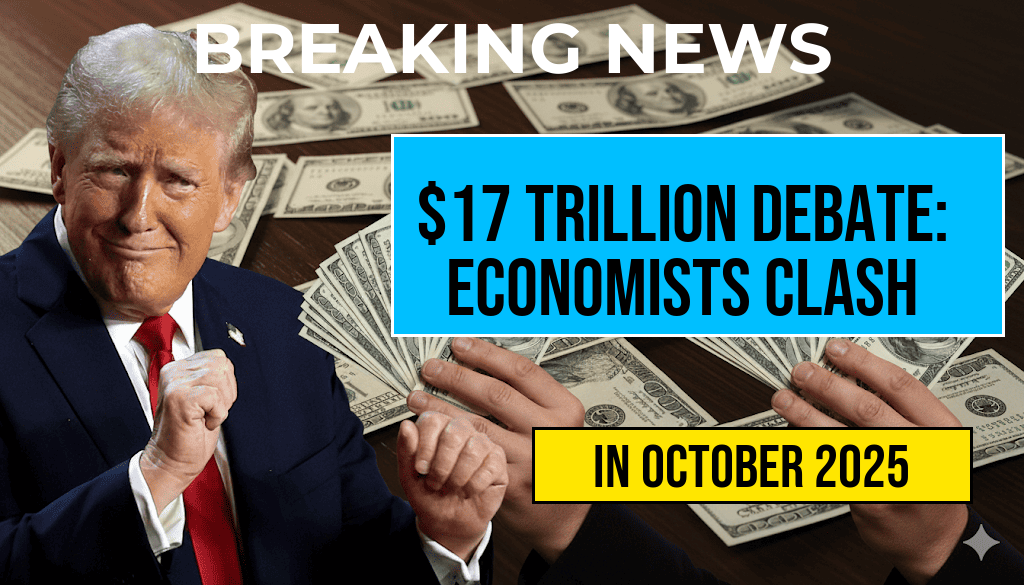Amid a heated national debate, claims by former President Donald Trump regarding his global investment portfolio have ignited controversy among economists and financial analysts. Trump asserted that his international holdings are valued at approximately $17 trillion, a figure he presents as evidence of his economic influence and business acumen. However, critics question the validity and transparency of these claims, arguing that the figure is either exaggerated or lacks credible backing. As the debate unfolds, experts are scrutinizing the methodologies used to estimate such a vast sum, raising questions about the impact of Trump’s assertions on public perception and policy discussions surrounding international investment and economic diplomacy.
Assessing the $17 Trillion Claim
Origins of the Figure
During a recent rally, Trump highlighted the purported $17 trillion global investment portfolio, suggesting that his business dealings extend across numerous countries and sectors. The figure appears to include a combination of assets, investments, and business interests spanning real estate, equities, and private holdings. However, financial analysts point out that no publicly available, comprehensive financial statement or audit confirms this total. The lack of detailed disclosures raises questions about how the figure was calculated and whether it reflects actual holdings or an aggregation of estimated values.
Methodological Challenges
| Methodology | Description | Limitations |
|---|---|---|
| Market Valuation | Using current market prices to estimate asset values | Fluctuates with market conditions; may not account for private assets |
| Book Value | Based on accounting records of assets | May not reflect current market worth |
| Estimated Appraisals | Third-party appraisals for private holdings | Subjective and varies between appraisers |
Experts emphasize that without transparent disclosure and standardized valuation methods, such large figures are difficult to verify. The absence of detailed breakdowns leaves room for speculation about the actual size of Trump’s global investments.
Economic Implications and Public Perception
Impact on Policy and Political Discourse
Trump’s claims have resonated within political circles, fueling debates over the role of foreign investments in U.S. economic strength. Supporters argue that such extensive international holdings demonstrate effective global business strategies, bolstering national economic standing. Opponents, however, warn that inflated figures could mislead the public and obscure the complexities of international finance. Some critics suggest that overestimating one’s global footprint might influence policy decisions or sway investor confidence based on exaggerated premises.
Reactions from Economists
Leading economists, including those affiliated with institutions like the Wikipedia’s Economics page, emphasize the importance of transparency and rigorous valuation standards. Dr. Lisa Martinez, a senior economist at the Center for Economic Policy Research, notes, “While international investments are crucial for economic growth, claims of such magnitude necessitate clear documentation and independent verification. Without that, they risk undermining trust.” Several analysts suggest that the focus should shift toward tangible, verifiable data rather than ambitious estimates.
Legal and Ethical Considerations
Transparency and Disclosure
Federal regulations mandate that publicly traded companies disclose significant holdings, but private individuals, including politicians and business magnates, face less stringent reporting requirements. Trump’s assertions, therefore, often rely on estimates rather than concrete data, complicating efforts to validate the claims. Ethical concerns arise when such figures are used in political rhetoric, potentially influencing public opinion without providing a factual basis.
Potential for Misleading the Public
Accusations have surfaced accusing some political figures of inflating their financial stature to gain leverage or sway electoral support. Experts warn that unverified claims about multi-trillion-dollar portfolios can distort perceptions of economic influence, especially amid politically charged environments. As a safeguard, transparency advocates call for clearer disclosures and independent audits of significant international holdings.
Looking Ahead: The Role of Verification
The controversy underscores the necessity for rigorous verification processes in assessing global investments, particularly when figures are wielded in political contexts. While Trump’s claims highlight the interconnectedness of modern business, they also expose the risks of relying on estimations lacking external validation. As discussions continue, stakeholders advocate for standardized reporting and greater accountability to ensure that public debates are grounded in verifiable data, fostering trust in economic claims and analyses.
For further insights into global investment practices and valuation standards, visit Wikipedia’s International Investment and consult reputable financial analysis sources like Forbes.
Frequently Asked Questions
What is the main controversy surrounding Trump’s global investment claims?
The controversy centers on whether Trump’s claims of a $17 trillion global investment are accurate or exaggerated, leading to a heated debate among economists and analysts about the true scale and impact of his investments.
How do economists assess the accuracy of Trump’s investment figures?
Economists analyze public financial data, trade records, and investment reports to verify the claimed $17 trillion. Many argue that the figures are overstated or misrepresented, while others believe they reflect significant global economic influence.
What are the potential implications of overestimating global investments?
Overestimating investment figures can lead to misleading economic narratives, affecting policy decisions, investor confidence, and the perceived strength of Trump’s economic impact on the global stage.
Why do some economists support Trump’s investment claims?
Supporters argue that Trump’s policies, trade deals, and business activities have generated significant global investments worth trillions, and that these figures are based on aggregated data reflecting his economic influence.
What are the main challenges in verifying large-scale investment claims?
The primary challenges include complex international financial data, varying definitions of investments, and lack of transparent reporting. These factors make it difficult to accurately verify and quantify the claimed $17 trillion.

Leave a Reply